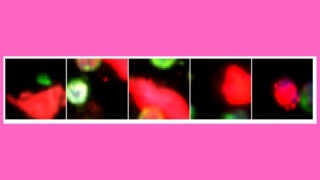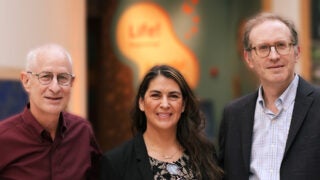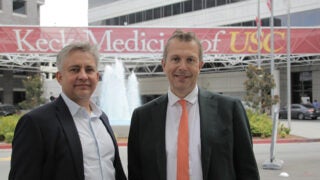How to overcome COVID-19 vaccine hesitancy: Build confidence and establish trust
Countering misinformation, leaning on community leaders, using the proper terminology. USC experts explain why all this and more is needed to slow the spread of COVID-19.
The COVID-19 pandemic has spiraled out of control as a more contagious version of the virus spreads, increasing the urgency to quickly vaccinate as many people as possible. Just this week, Los Angeles County and Orange County designated Dodger Stadium and Disneyland as vaccination supersites.
Yet polling over the last several months has shown that many Americans have safety concerns and don’t want the vaccine just yet. USC experts say that hesitancy can be overcome by normalizing the process surrounding the COVID-19 vaccine with straightforward information from trusted sources such as clinicians and pharmacists.
Lourdes Baezconde-Garbanati, a professor of preventive medicine and the associate dean for community initiatives at the Keck School of Medicine of USC, says mistrust and misinformation abound.
Among the false claims: vaccines cause infertility, vaccines give you COVID-19, vaccines alter your genetic makeup, vaccines are a ploy by the government to implant microchips to track people.
“We see a lot of concern about vaccines, fueled in part by an anti-vaccine movement that we happened to walk into with the COVID-19 pandemic,” she said.
“We’re seeing a trend where at first there was a high level of support for vaccines, but that started to diminish among the African American and Hispanic communities. Then we found health care providers were hesitant to get the vaccine.
“We see huge disparities in acceptance. Unless we get herd immunity with lots of people vaccinated, we’re not going to get this disease under control.”
To lessen hesitancy, bring the COVID-19 vaccine to the community
Tailoring the message to the audience, using simple information and making vaccination visible and accessible could go a long way toward creating buy-in, experts say.
“Converting Dodger Stadium from a testing center into a vaccine supersite, as L.A. is doing this week, makes COVID vaccination more visible in a positive way and helps normalize it — especially for a Black and Latino population that has historically been discriminated against in health care,” said April Thames, an associate professor of psychology and psychiatry at the USC Dornsife College of Letters, Arts and Sciences.
“Having a vaccination center in the heart of the community can open up lines of trust.”
Having a vaccination center in the heart of the community can open up lines of trust.
April Thames
Pharmacists are well-positioned to lead the way in vaccine encouragement — partly because many of them get to know their customers personally, says Vassilios Papadopoulos, dean of the USC School of Pharmacy.
“Pharmacists are the most-contacted health professionals for people with chronic conditions such as diabetes and hypertension — those at high risk for COVID-19,” he said. “At many independent community pharmacies, pharmacists know their patients well enough to be proactive in urging them to come in for a vaccination.
“The plan is to open dozens of additional vaccination sites, many of which will be retail pharmacies. Pharmacists are in a good place to lead COVID-19 vaccine encouragement efforts; 90% of the population lives within five miles of a pharmacy.”
Proper communication about COVID-19 vaccination is key, especially if the virus mutates
Using the wrong vocabulary can cause outreach efforts to misfire, says Wändi Bruine de Bruin, USC Dornsife Provost Professor of Public Policy, Psychology and Behavioral Science at the USC Price School of Public Policy.
In a 2008 study she conducted, she learned that parents seeking information about vaccination would search online using the word “shots.” The search results pointed them to anti-vaccine websites instead of the information from sources like the U.S. Centers for Disease Control and Prevention.
“Using a nationally representative survey that we’ve been doing every two weeks, we’ve been asking people since March 2020 how likely they are to get the coronavirus vaccine if it’s available. In March, 83% of our participants said they would get it. In December, that declined to 63%,” Bruine de Bruin said.
“That suggests we really need to get in place a good vaccine allocation and communication strategy to encourage people to get vaccinated.”
Recent news about the more contagious variant of the virus may cast doubt on the efficacy of the current vaccine — but those concerns aren’t warranted.
“The good news about our immune response to vaccines is that it’s multifaceted, creating antibodies, for example, that will recognize different parts of the virus spike protein,” said Paula Cannon, a Distinguished Professor of Molecular Microbiology and Immunology at the Keck School of Medicine and an expert in how viruses are transmitted and controlled.
“Even if the virus mutates and perhaps becomes resistant to one antibody, there will be others lining up to take its place. So far, very early lab experiments suggest that the new strains will be just as sensitive to the immunity created by these vaccines.”



